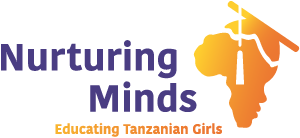The Mentorship Program at SEGA
Girls in The Mentorship Program at SEGA receiving training on how to be a good mentor.
The SEGA Mentorship Program has been in effect since 2011 and is one of the many reasons why SEGA is unlike any other educational institution of its kind. The Program was started by Pauline, a teacher at SEGA. She wanted to find a way to create support systems for students by helping them forge deeper connections. So she came up with the idea to start a mentor program that matched older students with new ones entering SEGA to guide them through the transition into life at their new school.
As part of the program, mentors and mentees meet once a week during their lunch breaks. SEGA provides topics for the girls to discuss when they meet and will train the mentors on these topics to ensure that there is full participation and that the mentees are receiving the maximum amount of value. Topics in the past have included personal hygiene, table manners, communication, and school rules. SEGA tries to choose topics that are of common interest and shared experience between mentors and mentees so that they can relate to each other. In order to become a mentor, girls must learn the curriculum taught at the Eastern Africa Leadership Summit which includes how to deal with self-esteem issues, tools for understanding and listening.
Girls in The Program meeting during their lunch break.
Very quickly Pauline and others at SEGA started to see the positive effects of the program. They noticed that new students were benefiting from having a peer with whom they could discuss important issues that are often difficult to talk about. Having a confidant helps the girls feel both supported and less alone all while allowing them to talk openly with a non-judgmental listener to navigate this difficult, transitional time. This mentor-mentee relationship allows the girls to develop bonds with each other that are so deep that they feel like family and call themselves ‘mother’ and ‘daughter’.
Surprisingly, Pauline also has noticed dramatic effects on the older girls who were mentors. First and foremost, the older mentors report that they feel better equipped in their own personal relationships with their friends and family and feel especially equipped to become mothers later in life. In this way, learning the skills to be a teacher, caregiver, listener, and problem solver helps the girls in their own communities and relationships in life after SEGA. Pauline commented that a second unforeseen benefit of the program was how they are able to nail job interviews and consequently get better jobs. The people skills that mentors develop in their training has proven invaluable not only in the context of their mentor-mentee relationship but also in the professional world.
Pauline said that Graduation Day is of course a bitter-sweet moment for everyone, and the mentees who have graduating mentors often cry because they are losing such a close friend and mother-like figure. However, mentees are always very excited when their mentors come back to visit for alumni events. Pauline says that it is very heartwarming that the first thing that graduated mentors do when they get back to school is reunite with their mentees and catch-up, still calling each other ‘mothers’ and ‘daughters’ and proving that their connection truly lasts a lifetime.


